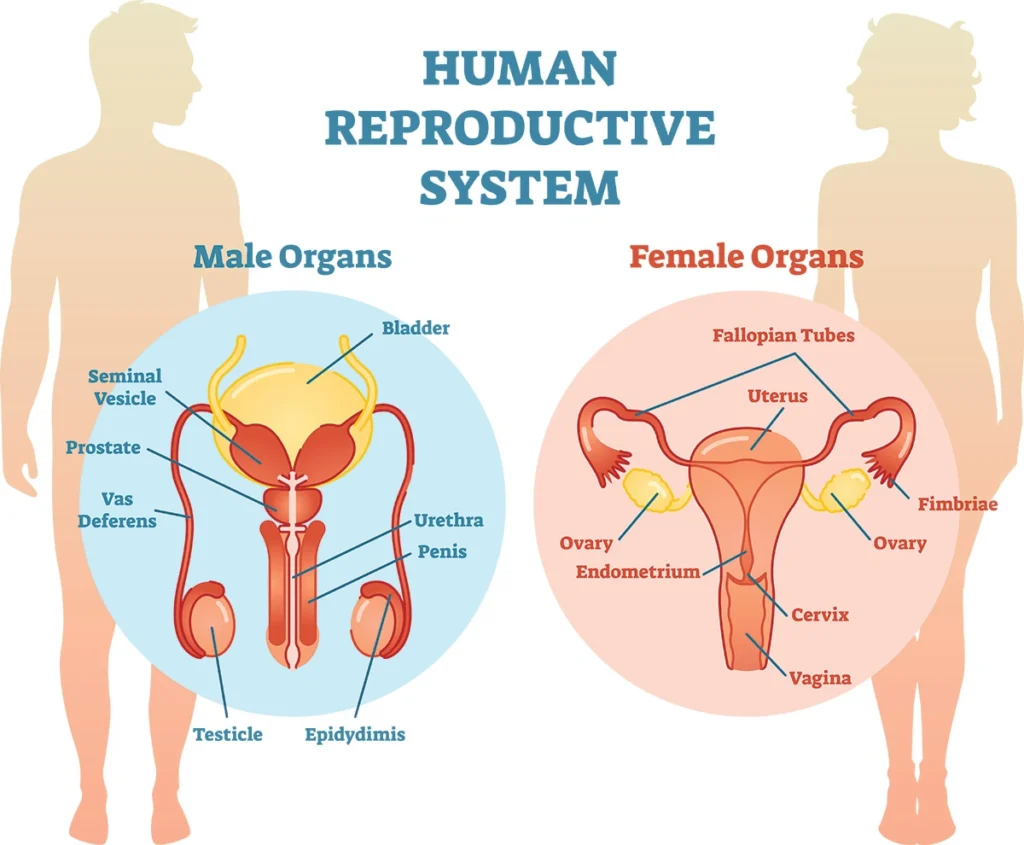A healthy sex life can improve your overall well-being and reduce your risk of certain diseases. These sexual health tips go beyond better performance—they focus on your complete health.
Your sexual function connects directly to your overall health and lifestyle choices. The intensity of youthful sex naturally transitions to more measured responses with age. This change doesn’t mean your intimate life should decline. Men and women need to understand their body’s changes to maintain sexual wellness.
How to Maintain Sexual Health as Adult?
Sexual response depends on several factors. Your feelings about your partner and yourself play a role. Your health status matters too. Religious and cultural upbringing shape your experiences. You can discover the full potential of your sex life by understanding the vital physical and emotional elements that create satisfying intimacy.
This piece explores practical, evidence-based ways to improve your sexual health. We’ll look at weight management, better circulation, deeper emotional connections, and long-term wellness habits.
Understand Your Body and Sexual Health

Understanding your sexual anatomy is key to your long-term wellness. You need to know how your body works sexually to make smart choices and spot when something’s not right.
How sexual function changes with age
Your sexual function naturally changes as you age. Men over 50 notice their sexual response slows down. They need more time to get erections, which aren’t as firm as before and don’t happen as often. But good blood flow lets you maintain erections strong enough for sex throughout life.
Women experience changes after menopause mostly due to lower estrogen levels. They take longer to get aroused and have thinner vaginal walls. There’s less natural lubrication, and orgasms might be shorter with weaker contractions.
These changes don’t mean you’ll enjoy sex less as you age. Your interest and pleasure can stay strong. You just might need to adjust to what your body needs now.
The role of nitric oxide in sexual performance
Nitric oxide is vital for sexual function, especially for getting erections. This natural gas helps blood vessels relax and increases blood flow.
Your body releases nitric oxide from nerve endings and blood vessel linings in the penis during arousal. This triggers chemical reactions that boost cGMP, which relaxes smooth muscles and lets more blood flow into erectile tissues.
Your nitric oxide production drops with age, which can reduce sexual performance. Health conditions like diabetes, hypertension, and high cholesterol can also limit nitric oxide activity. These issues affect about 41% of men with erectile dysfunction.
Why awareness of your body matters
Your body awareness strongly affects your sexual health. Research shows you respond better sexually when you focus on pleasant sensations during intimate moments, especially with fewer distractions.
Understanding your body’s reactions helps you tell partners what you need. Research also shows that liking your body and accepting yourself leads to better sex and closer relationships.
Sexual health goes beyond physical function. It covers your emotional and mental well-being throughout life, not just your reproductive years. Understanding how your body responds and changes builds the foundation for good sexual health at any age.
Lifestyle Changes That Improve Sexual Health
Simple lifestyle changes can make a big difference in your sexual function and satisfaction. Your diet and activity levels are the foundations of sexual health.
Manage your weight to reduce inflammation
Extra weight affects sexual function by increasing inflammation. Men who carry excess weight have more problems with erectile dysfunction. Those with a 42-inch waist have a 50% higher risk of ED than men with a 32-inch waists. A study showed that obese men who lost about 33 pounds (15kg) got their erectile function back in 31% of cases. The control group saw improvement in only 5% of cases. Women who lose just 10% of their weight can cut their sexual desire problems in half and feel better about their bodies.
Eat foods that support blood flow and hormone balance
Your food choices are vital to sexual performance. These foods help boost nitric oxide production and blood flow:
- Garlic and onions: They have compounds that help blood flow
- Beets: They’re packed with nitrates that turn into nitric oxide
- Citrus fruits and berries: They contain flavonoids that help blood vessels work better
- Fatty fish: It gives you omega-3 fats for heart health
- Seeds, nuts and whole grains: They contain phytoestrogens that balance hormones
Exercise regularly for better circulation and stamina
Exercise improves sexual function by a lot through better blood flow and energy. A daily 30-minute walk can cut ED risk by 41%. Cardio helps heart health while strength training builds sexual stamina and endurance. Women benefit too – exercise increases blood flow to the pelvis and releases endorphins that lift mood and desire.
Quit smoking to protect blood vessels
Smoking hurts your sexual health by limiting blood flow and affecting nitric oxide production. Research shows that 31.6% of smokers have ED compared to 26% of non-smokers. People who quit smoking showed better erectile function and higher sex drive than current smokers, which suggests quitting can bring back sexual function.
Limit alcohol to avoid performance issues
A little alcohol might lower your inhibitions, but too much disrupts sexual function. Alcohol messes with brain signals needed for arousal, reduces blood flow, and changes hormone levels including testosterone. Men might experience delayed or premature ejaculation. The problems are systemic – more than 67% of men with alcohol use disorder face sexual issues, mostly premature ejaculation, low sex drive, and ED.
Emotional and Mental Wellness for Better Intimacy

Sexual wellness has a direct connection to your mental state. Research reveals that emotional intimacy and sexual satisfaction improve when couples practice mindfulness together.
Reduce stress to improve arousal
Both men and women experience lower testosterone levels and decreased libido due to cortisol released during chronic stress. Women under high stress face sexual dysfunction 3.54 times more frequently. Male residents who experience high stress levels report sexual dissatisfaction 4.94 times more often.
Practice relaxation techniques before intimacy
These proven techniques help create intimate moments:
- Deep breathing exercises reduce anxiety and help you relax
- Meditation enhances your awareness of the present moment
- Long hugs lasting 20 seconds or more trigger oxytocin release
These methods keep you focused on the moment instead of performance anxiety or daily worries.
Maintain physical affection and emotional connection
Building intimacy requires physical touch. Studies show that 90% of couples consider touch crucial for emotional bonding. Daily satisfaction improves with six or more positive physical interactions. Emotional bonds grow stronger through regular 10-20 minute check-ins.
Explore fantasies and communicate desires
Couples who talk about sex more often report better satisfaction with their sex lives. Discussions about desires work best when partners first highlight what they enjoy sexually. Partners should feel safe sharing fantasies without judgment or fear of rejection.
Build Long-Term Sexual Wellness Habits

Good sexual wellness habits are the foundations of lasting intimacy. These practices will boost your connection with your partner throughout life.
Do Kegel exercises to strengthen pelvic muscles
Kegel exercises make your pelvic floor muscles stronger and support your bladder, rectum, and reproductive organs. You’ll prevent urinary leakage and enjoy better sexual function with regular practice. Here’s how to do Kegels the right way:
- Find the right muscles by stopping urination midstream
- Squeeze these muscles for 3-5 seconds, then relax for 3-5 seconds
- You should do three sets daily and work your way up to 10-15 repetitions per set
Don’t do Kegels while urinating because this might prevent your bladder from emptying completely.
Try new positions and tools like vibrators
New positions keep your intimate moments from getting boring. Studies show that couples feel more satisfied when they mix up their positions regularly. The numbers back this up – between 46-66% of couples use toys together to spice things up.
Supportive pillows can help with challenging positions and make them more comfortable while maximizing pleasure.
Talk openly with your partner about needs
Good communication makes sex better. Tell your partner what you enjoy with positive words: “I like when you…” instead of focusing on what’s wrong. Your body language speaks volumes too – guide your partner’s hand or adjust movements to show what feels good.
Know when to seek professional help
A sex therapist can help if your sexual problems last more than three months, happen with every partner, or affect your daily life. Research shows early help works better – success rates drop from 70% to 40% when people wait longer than three months.
Sex therapy helps with all stages of sexual response and offers specific techniques for complete care.
Conclusion
Sexual health plays a key role in your overall well-being throughout life. Your body changes with age, and understanding these changes helps you adapt and meet intimate needs despite natural physical changes. Your knowledge of sexual anatomy and function builds the foundation to make smart choices about intimate health.
Simple lifestyle changes can improve your sexual wellness by a lot. Your body responds well to weight management that reduces inflammation. Good nutrition helps blood flow and hormone balance. You’ll see better circulation and performance when you exercise regularly, quit smoking, and drink less alcohol. These physical improvements work together to create better intimate experiences.
Your emotional wellness matters just as much for sexual health. You can strengthen your connection with your partner through stress reduction, mindfulness, and physical affection. Open talks about desires and fantasies will improve intimacy and satisfaction for both partners.
Good sexual wellness comes from daily habits. Your pelvic muscles get stronger with Kegel exercises, and trying new positions keeps things fresh. You should talk openly about needs and ask for professional help when needed to maintain sexual wellbeing.
Sexual health covers both physical and emotional parts of intimacy. Age brings changes, but these changes don’t mean the end of pleasure. They create chances to adapt and grow. Your sexual wellness trip continues through life and grows with you and your relationships to improve your overall health and happiness.
FAQs
Q1. How can I improve my sexual wellness as I age?
As you age, focus on maintaining overall health through regular exercise, a balanced diet, and stress management. Adapt to physical changes by exploring new techniques, using lubrication if needed, and communicating openly with your partner about desires and needs.
Q2. What role does diet play in sexual health?
Diet significantly impacts sexual function. Foods that improve blood flow and hormone balance include garlic, onions, beets, citrus fruits, berries, fatty fish, seeds, nuts, and whole grains. These foods can enhance nitric oxide production and support cardiovascular health, which are crucial for sexual performance.
Q3. How does stress affect sexual function?
Chronic stress can significantly impair sexual function by releasing cortisol, which lowers testosterone and diminishes libido in both men and women. High stress levels can increase the odds of sexual dysfunction and dissatisfaction. Practicing relaxation techniques and mindfulness can help reduce stress and improve sexual experiences.
Q4. Are Kegel exercises beneficial for sexual health?
Yes, Kegel exercises are beneficial for sexual health. They strengthen pelvic floor muscles, which support reproductive organs and can improve sexual function. Regular practice can help prevent urinary leakage and enhance sexual satisfaction for both men and women.
Q5. When should I consider seeking professional help for sexual issues?
Consider consulting a sex therapist if sexual issues persist for more than three months, recur with every partner, or cause daily distress. Seeking help earlier often leads to better outcomes. Sex therapy can address problems in all phases of sexual response and provide specific techniques for comprehensive care.





